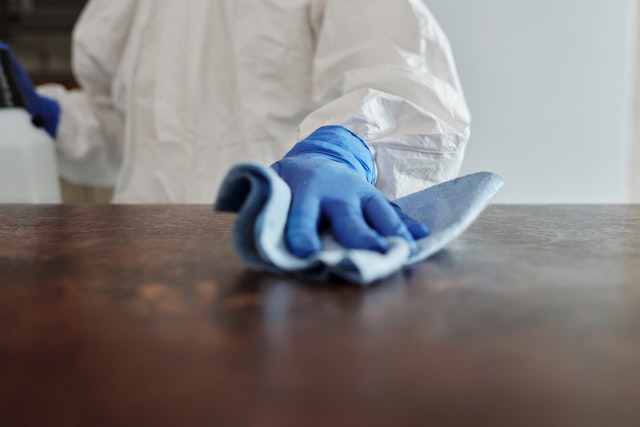Leaving your air filter in the HVAC system past its prime may seem like an easy way to save some money, but it could lead to severe issues. In addition to backing up your system, a dirty air filter can stop your heater from working altogether.
According to Filter King, it is best to replace your air filter every month or two months. Otherwise, the filter gets clogged, causing the furnace and HVAC system to shut off. Let’s see exactly why a dirty air filter may cause your heater to stop working.
Why a Dirty Air Filter Makes a Heater Stop Working?
For starters, it is essential to understand the furnace in your home regulates the incoming air temperature, ensuring optimal comfort. The HVAC system is also created in such a manner to distribute warm and clean air through the air ducts evenly. To ensure that the indoor air is safe for you to breathe, it is vital to change the air filter regularly. By doing so, you will prevent dust, dirt, and debris from clogging and infiltrating the air supply.
Depending on your home’s air filter type and heating program, the lifespan of an air filter can range from 30 days to 6 months. If you fail to replace the air filter, it will become dirty, preventing air from flowing into the furnace. Over time, this can cause the heater to shut down.
Of course, you will notice warning signs before this happens. If you see more dust in your home than usual, notice weak air circulation, or see furnace short-cycles (your HVAC systems turn on, then right back off), you need to change the air filter. The last one is a huge red flag because the inside of your HVAC unit is overheating, which could lead to a breakdown. If changing the air filter doesn’t fix your issues, you may need to call a professional before it worsens.
Before the summer season, it is best to replace your air filter to prevent damage to your HVAC compressor.
Other Common Issues Caused by Dirty Air Filters
Other than shutting down your air conditioner, dirty air filters can cause different issues if not changed regularly, such as:
Higher Energy Bills
The furnace uses a fan to circulate and recycle the warm air throughout your home. If the air filters are clogged, the fan uses more power to distribute the needed air. Thus, the total expenses of your energy bills will increase. A consistent replacement of your air filters will save you money on energy usage.
Poor Indoor Air Quality
Undoubtedly, a dirty and clogged air filter is as efficient as a clean one. Moreover, the filter will no longer block the dirt, dust, debris, contaminants, mold, or other materials from entering your house. Simply put, a dirty air filter will negatively impact you and your family members, especially if anyone in your home suffers from breathing conditions, asthma, or allergies. To improve the indoor air quality, consider replacing your air filter once a month.
The reasons why you should replace your air filter that often are simple:
- The more often you change the air filter, the less dust will build on it
- Less dirt generally means better performance from the air conditioner
Clogs May Lead to a Total HVAC Damage
If your furnace doesn’t turn on anymore, it may indicate damage to the heat exchanger, compressor, fan, gas valves, pilot light, pressure switches, or many other components. In severe cases, a dirty air filter can damage the internal components of your heating and cooling air conditioner. To avoid costly repairs, experts recommend regularly changing the furnace air filters to ensure they are clean.
A Comfortable Temperature Won’t Be Reached
Suppose you have a dirty and dusty air filter. Then, it will become harder and harder for air to pass efficiently through the system, leading to cold spots throughout your home. To ensure your house has a comfortable temperature, it would be best to remember to change air filters every one to six months.
Frozen Evaporator Coils
When you are trying to cool your home during summer, a dirty filter may cause the cooling coil or evaporator to freeze. There’s a simple explanation for that: there is not enough air moving past the coil to evaporate the condensation produced during the cooling process. The lack of airflow will allow the condensation to freeze, reducing the HVAC system’s ability to cool your home and eventually breaking down entirely.
How to Deal with a Dusty and Dirty Air Filter?
Some homeowners may find it hard to believe that an inexpensive air filter can protect an HVAC system worth over $3,000. It’s fair to say that an air filter not only saves you and your family from allergens and airborne contaminants but also heats and cools your home and increases the lifespan of the HVAC system.
Before spending money on costly repairs, you should consider replacing the air filters regularly. You can even remove the air filter from your furnace and clean it under warm water. After it dries, reinstall it back into the system. If you still experience issues, it might be time to buy a new filter.
Final Thoughts
Regardless of your HVAC system’s brand or power, every air conditioner needs a first-rate filter to ensure the indoor air quality is clean. Moreover, the HVAC will run at maximum efficiency—in winter or summer.
Whether you choose a disposable air filter, pleated filtered, activated carbon filters, or MERV 8-13, you’ll see a clear difference right away.
Related Posts: